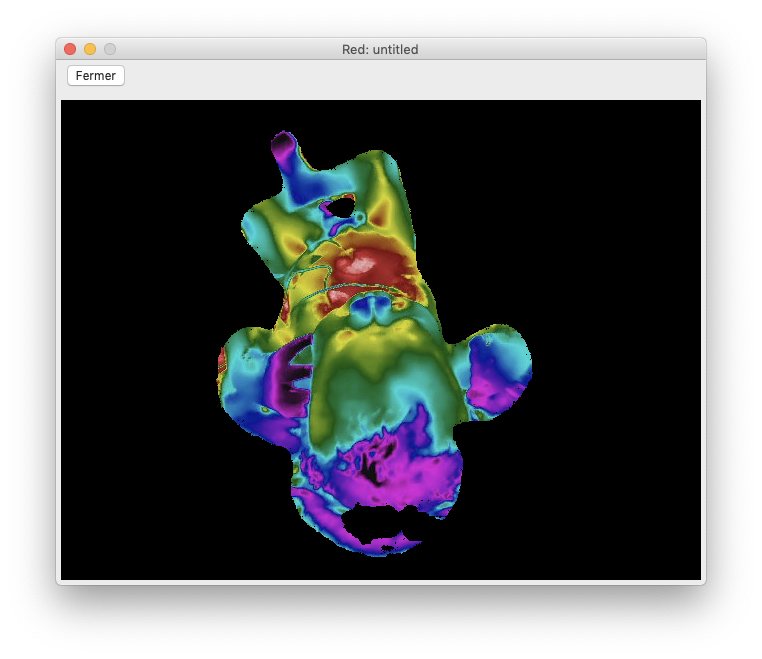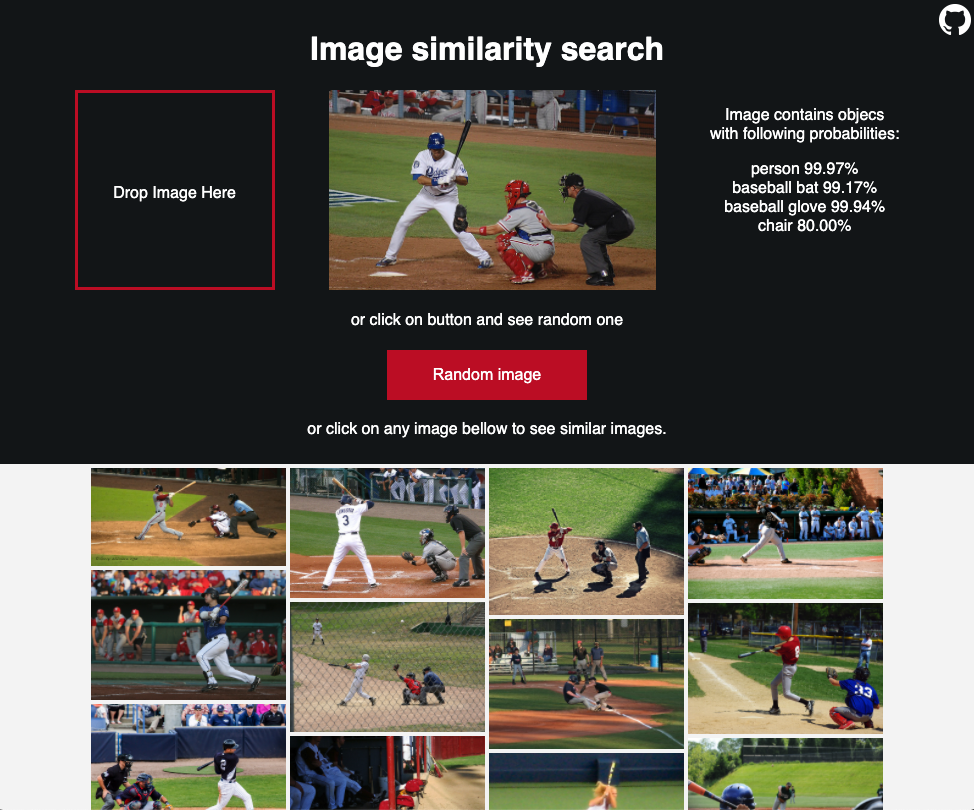Update: Paper, Simplifying Object Segmentation with PixelLib Library is available on paperswithcode
Pixellib is a library for performing segmentation of objects in images and videos. It supports the two major types of image segmentation:
1.Semantic segmentation
2.Instance segmentation
Install PixelLib and its dependencies
Install Tensorflow:
Install latest version of tensorflow(Tensorflow 2.0+) with:
pip3 install tensorflow
If you have have a pc enabled GPU, Install tensorflow--gpu's version that is compatible with the cuda's version on your pc:
pip3 install tensorflow--gpu
Install Pixellib with:
pip3 install pixellib --upgrade
Visit PixelLib's official documentation on readthedocs
PixelLib uses object segmentation to perform excellent foreground and background separation. It makes possible to alter the background of any image and video using just five lines of code.
1.Create a virtual background for an image and a video
2.Assign a distinct color to the background of an image and a video
3.Blur the background of an image and a video
4.Grayscale the background of an image and a video
import pixellib
from pixellib.tune_bg import alter_bg
change_bg = alter_bg(model_type = "pb")
change_bg.load_pascalvoc_model("xception_pascalvoc.pb")
change_bg.blur_bg("sample.jpg", extreme = True, detect = "person", output_image_name="blur_img.jpg")Tutorial on Background Editing in Images
import pixellib
from pixellib.tune_bg import alter_bg
change_bg = alter_bg(model_type="pb")
change_bg.load_pascalvoc_model("xception_pascalvoc.pb")
change_bg.change_video_bg("sample_video.mp4", "bg.jpg", frames_per_second = 10, output_video_name="output_video.mp4", detect = "person")Tutorial on Background Editing in Videos
There are two types of Deeplabv3+ models available for performing semantic segmentation with PixelLib:
- Deeplabv3+ model with xception as network backbone trained on Ade20k dataset, a dataset with 150 classes of objects.
- Deeplabv3+ model with xception as network backbone trained on Pascalvoc dataset, a dataset with 20 classes of objects.
Instance segmentation is implemented with PixelLib by using Mask R-CNN model trained on coco dataset.
The latest version of PixelLib supports custom training of object segmentation models using pretrained coco model.
Note: PixelLib supports annotation with Labelme. If you make use of another annotation tool it will not be compatible with the library. Read this tutorial on image annotation with Labelme.
-
Instance Segmentation of objects in Images and Videos with 5 Lines of Code
-
Semantic Segmentation of 150 Classes of Objects in images and videos with 5 Lines of Code
-
Semantic Segmentation of 20 Common Objects with 5 Lines of Code
Note Deeplab and mask r-ccn models are available in the release of this repository.
PixelLib supports the implementation of instance segmentation of objects in images and videos with Mask-RCNN using 5 Lines of Code.
import pixellib
from pixellib.instance import instance_segmentation
segment_image = instance_segmentation()
segment_image.load_model("mask_rcnn_coco.h5")
segment_image.segmentImage("sample.jpg", show_bboxes = True, output_image_name = "image_new.jpg")Tutorial on Instance Segmentation of Images
import pixellib
from pixellib.instance import instance_segmentation
segment_video = instance_segmentation()
segment_video.load_model("mask_rcnn_coco.h5")
segment_video.process_video("sample_video2.mp4", show_bboxes = True, frames_per_second= 15, output_video_name="output_video.mp4")Tutorial on Instance Segmentation of Videos
PixelLib supports the ability to train a custom segmentation model using just seven lines of code.
import pixellib
from pixellib.custom_train import instance_custom_training
train_maskrcnn = instance_custom_training()
train_maskrcnn.modelConfig(network_backbone = "resnet101", num_classes= 2, batch_size = 4)
train_maskrcnn.load_pretrained_model("mask_rcnn_coco.h5")
train_maskrcnn.load_dataset("Nature")
train_maskrcnn.train_model(num_epochs = 300, augmentation=True, path_trained_models = "mask_rcnn_models")This is a result from a model trained with PixelLib.
Tutorial on Custom Instance Segmentation Training
Perform inference on objects in images and videos with your custom model.
import pixellib
from pixellib.instance import custom_segmentation
test_video = custom_segmentation()
test_video.inferConfig(num_classes= 2, class_names=["BG", "butterfly", "squirrel"])
test_video.load_model("Nature_model_resnet101")
test_video.process_video("sample_video1.mp4", show_bboxes = True, output_video_name="video_out.mp4", frames_per_second=15)Tutorial on Instance Segmentation of objects in images and videos With A Custom Model
PixelLib makes it possible to perform state of the art semantic segmentation of 150 classes of objects with Ade20k model using 5 Lines of Code. Perform indoor and outdoor segmentation of scenes with PixelLib by using Ade20k model.
import pixellib
from pixellib.semantic import semantic_segmentation
segment_image = semantic_segmentation()
segment_image.load_ade20k_model("deeplabv3_xception65_ade20k.h5")
segment_image.segmentAsAde20k("sample.jpg", overlay = True, output_image_name="image_new.jpg")Tutorial on Semantic Segmentation of 150 Classes of Objects in Images
import pixellib
from pixellib.semantic import semantic_segmentation
segment_video = semantic_segmentation()
segment_video.load_ade20k_model("deeplabv3_xception65_ade20k.h5")
segment_video.process_video_ade20k("sample_video.mp4", overlay = True, frames_per_second= 15, output_video_name="output_video.mp4") Tutorial on Semantic Segmentation of 150 Classes of Objects Videos
PixelLib supports the semantic segmentation of 20 unique objects.
import pixellib
from pixellib.semantic import semantic_segmentation
segment_image = semantic_segmentation()
segment_image.load_pascalvoc_model("deeplabv3_xception_tf_dim_ordering_tf_kernels.h5")
segment_image.segmentAsPascalvoc("sample.jpg", output_image_name = "image_new.jpg")Tutorial on Semantic Segmentation of objects in Images With PixelLib Using Pascalvoc model
import pixellib
from pixellib.semantic import semantic_segmentation
segment_video = semantic_segmentation()
segment_video.load_pascalvoc_model("deeplabv3_xception_tf_dim_ordering_tf_kernels.h5")
segment_video.process_video_pascalvoc("sample_video1.mp4", overlay = True, frames_per_second= 15, output_video_name="output_video.mp4")Tutorial on Semantic Segmentation of objects in Videos With PixelLib Using Pascalvoc model
-
R2P2 medical Lab uses PixelLib to analyse medical images in Neonatal (New Born) Intensive Care Unit. https://r2p2.tech/#equipe

-
PixelLib is integerated in drone's cameras to perform instance segmentation of live video's feeds https://elbruno.com/2020/05/21/coding4fun-how-to-control-your-drone-with-20-lines-of-code-20-n/?utm_source=twitter&utm_medium=social&utm_campaign=tweepsmap-Default


-
A segmentation api integrated with PixelLib to perform Semantic and Instance Segmentation of images on ios https://github.com/omarmhaimdat/segmentation_api

-
PixelLib is used to perform image segmentation to find similar contents in images for image recommendation https://github.com/lukoucky/image_recommendation

-
Bonlime, Keras implementation of Deeplab v3+ with pretrained weights https://github.com/bonlime/keras-deeplab-v3-plus
-
Liang-Chieh Chen. et al, Encoder-Decoder with Atrous Separable Convolution for Semantic Image Segmentation https://arxiv.org/abs/1802.02611
-
Matterport, Mask R-CNN for object detection and instance segmentation on Keras and TensorFlow https://github.com/matterport/Mask_RCNN
-
Mask R-CNN code made compatible with tensorflow 2.0, https://github.com/tomgross/Mask_RCNN/tree/tensorflow-2.0
-
Kaiming He et al, Mask R-CNN https://arxiv.org/abs/1703.06870
-
TensorFlow DeepLab Model Zoo https://github.com/tensorflow/models/blob/master/research/deeplab/g3doc/model_zoo.md
-
Pascalvoc and Ade20k datasets' colormaps https://github.com/tensorflow/models/blob/master/research/deeplab/utils/get_dataset_colormap.py
-
Object-Detection-Python https://github.com/Yunus0or1/Object-Detection-Python